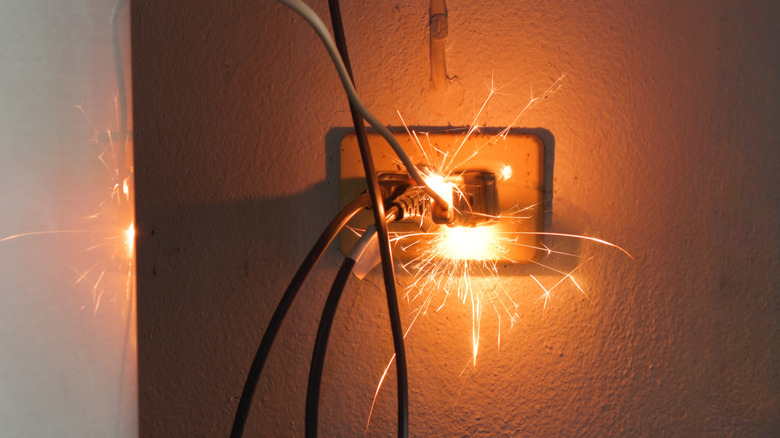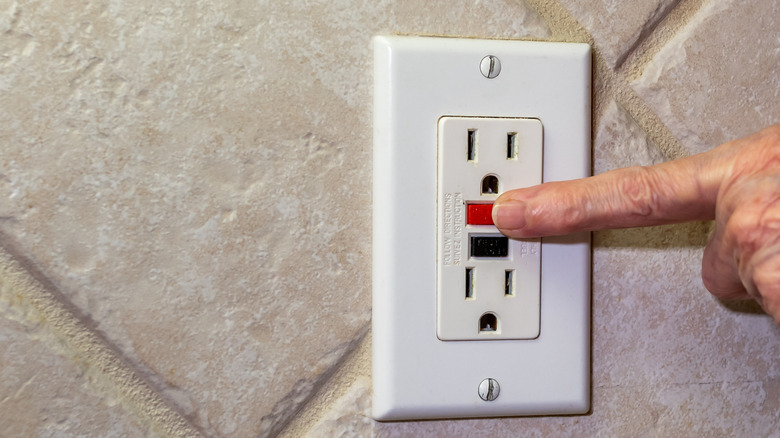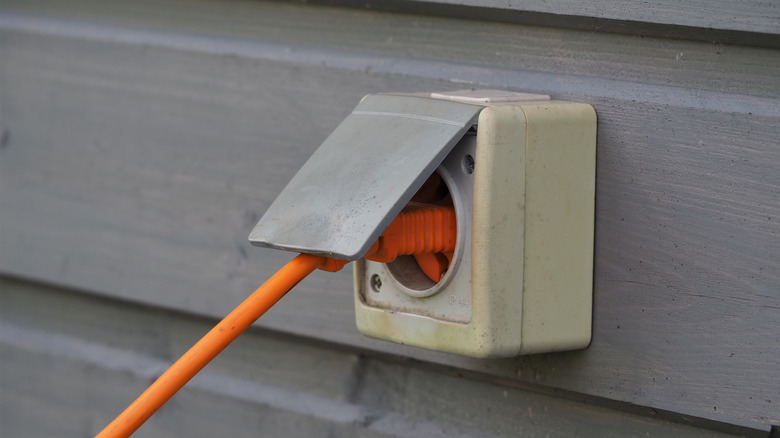Old House? Here's The Key Safety Reason To Get An Electrician To Take A Look
We may receive a commission on purchases made from links.
Whether you are flipping an old house or simply live in one, you may be concerned about when you'll have to replace the septic, the roof, or the plumbing ... but maybe it's your outlets you should be worried about, instead. As harmless as they may seem, old outlets can actually be a serious hazard to your home. That's why Hunker exclusively spoke with Dan Mock, VP of Operations at Mister Sparky, for the insider scoop. His main concern with old outlets? Lack of ground-fault circuit interruptors, better known as GFCI.
"GFCI protection became required in homes in the early 1970s," says Mock. "While most homes built before the 70s have undergone some code updates, we recommend you have an electrician assess your system to ensure you have proper GFCI protection."
If you've gotten to this point and you're still wondering "Well, what is a GFCI, actually?" — well, they are a safety feature designed to protect from shocks and electrical fires, by interrupting the flow of electricity when it senses an imbalance on input vs. output of the current. And it's not just fire hazards that are a concern. As Mock explains, "If your home was built after the 1970s but before 2000, it's likely that the outlets in your bathrooms, garage and exterior are connected," said Mock. "Ensure all GFCI outlets in your home are tested before plugging in lights. If your home is wired this way, a power loss to your lights could cause power loss in other parts of your home." Fortunately, if you are wondering how to reset a reset a GFCI, you've probably done it before. Simply press the reset button on the outlet itself: If color coded, it will be red.
What are my options if my house is wired this way?
While it would be great if you could afford to get your electrical wiring completely replaced, that's not a reasonable fix for everyone. Instead, Dan Mock, VP of Operations at Mister Sparky told Hunker he suggests starting with a test to confirm that your outlets are all connected. If they are, he says you have two options. "Either separate these connected outlets by adding a circuit with a licensed professional electrician, or add GFCIs onto the circuit so that an issue with a plug would only cause one outlet to click off, rather than all outlets on the circuit losing power. This tends to be a more cost-effective solution than adding a circuit."
If you're wondering exactly where you need GFCIs, code only requires them to be in certain areas, most of which are in places that could be exposed to water — think bathroom, kitchen, and the outdoors. If you have an older house, there is also a chance that more than one of your GFCIs are connected. This means that if you trigger one to shut off, it could cause a bunch of them to turn off as well.
The good news is that there is a way to test out your GFCI outlets yourself. "Pressing the 'Test' button on the GFCI outlet should cut off power to anything plugged into the outlets on the circuit," said Mock. "This indicates the GFCI protection is working correctly. If you push the 'Test' button and the power does not cut-off, the GFCI protection may not be functioning. At this point, have it inspected by a qualified electrician."
What should I know about outdoor outlets?
When it comes to outdoor outlets, GFCIs are especially important to ensure that your home is safe. This can get particularly important if and when the holiday season is around the corner, as use of exterior outlets gets more common than usual, thanks to Christmas lights.
"Since your yard decorations are exposed to rain and water from sprinklers, the outlet you plug in to should be GFCI protected," Dan Mock, VP of Operations at Mister Sparky told Hunker. "GFCI protection cuts off power by sensing a potential water shock hazard. In up-to-code homes, GFCI protected outlets are present in all wet areas, including bathrooms, kitchen, garage, and the home's exterior."
If something does trigger the GFCI's outdoors, there is a good chance you will have some power outages indoors, as well. "You should expect and be prepared for the GFCI to click off while your lights and decorations are out," said Mock. While it may seem inconvenient, it is worth having to reset if, it means protecting your home from a possible fire or other electrical hazard. And in the end, safety is the goal of all electric updates, so if you do have an older home, the outlets are definitely something you'll want to look into.


